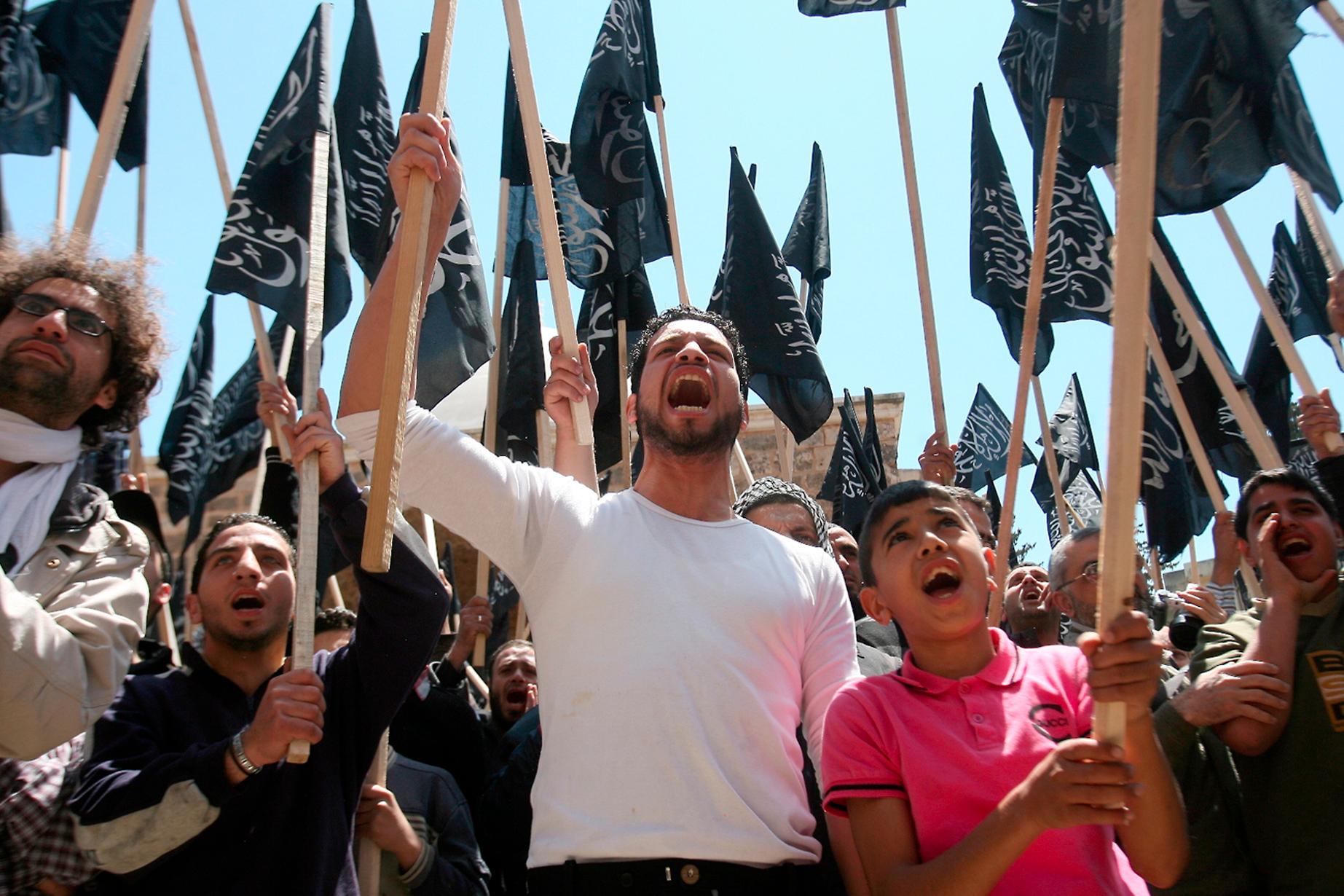At least 49 killed in Friday protests in Syria
Supporters of pan-Islamic group Hizb al-Tahrir (Party of Liberation) wave the party’s flags as they shout slogans during a protest against the Syrian regime in the northern Lebanese city of Tripoli on April 22, 2011.
Syrian troops were reported to have shot dead at least 49 protesters as mass anti-government rallies went ahead in towns across the country on Friday, a day after President Bashar al-Assad lifted the country’s 48-year-old state of emergency.
Eight of those reported killed were protesting in the Damascus suburb of Douma, according to CNN, while four were reported killed in the city of Homs.
One resident of Homs, a city of 700,000 people in the west, told the BBC she had heard shooting and believed that three separate protests were under way in the city.
Syrian forces also reportedly fired tear gas at protesters in Damascus, Arabiya television reported.
Weeks of protests have reportedly left at least 250 people dead.
Middle East director for Human Rights Watch, Joe Stork, had called on Assad to prove his good intentions by allowing Friday's protests to proceed "without violent repression."
"The reforms will only be meaningful if Syria's security services stop shooting, detaining, and torturing protesters," he said, the BBC reported.
Meanwhile, writes GlobalPost's Hugh McLeod, the lifting of emergency laws in Syria will do little to reduce human rights abuses according to legal experts as long as security forces remain immune from prosecution, judges are appointed by the ruling Baath Party and regime opponents continue to be jailed under Draconian charges in the penal code and Constitution.
“There are 15 branches of security in Syria and all of them will remain immune from prosecution, even after emergency laws are lifted. The security services are above the law,” said Haitham Maleh, a former judge and veteran human rights campaigner, arrested repeatedly in Syria for his criticism of the regime.
Laws dating to 1969 protect Syria’s General Intelligence division from prosecution, except by their superior officer. In a 2008 decree, Assad extended the law to give all 15 branches of the security services immunity from prosecution, a cover that will not be lifted when emergency laws are abolished.
The link between the judiciary and the regime will also not be affected by the lifting of the state of emergency: Assad will continue to sit as head of the six-member Supreme Judicial Council with the Minister of Justice as his deputy.
Every day, reporters and producers at The World are hard at work bringing you human-centered news from across the globe. But we can’t do it without you. We need your support to ensure we can continue this work for another year.
Make a gift today, and you’ll help us unlock a matching gift of $67,000!
